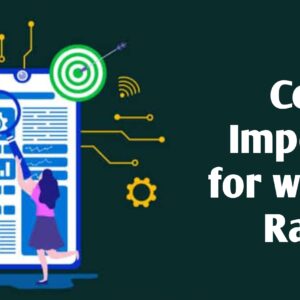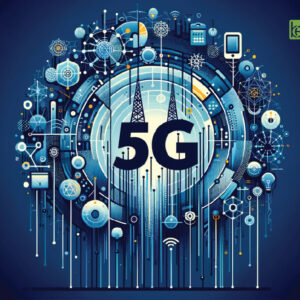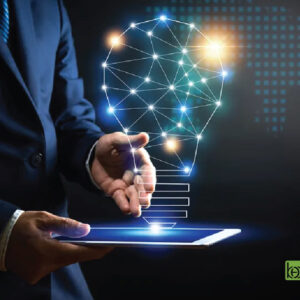Now Reading: The Daily Impact Of Technology On Modern Life
-
01
The Daily Impact Of Technology On Modern Life
The Daily Impact Of Technology On Modern Life

Technology has become an inseparable part of our daily lives, influencing everything from how we communicate to how we work, shop, and entertain ourselves. While it has brought immense convenience and efficiency, it has also introduced challenges that society continues to grapple with. This article explores the multifaceted impact of technology on modern life, highlighting both the positive and negative aspects.
1. Communication
One of the most profound effects of technology is its transformation of communication. The rise of smartphones, instant messaging apps, and social media platforms has enabled people to connect instantly, regardless of geographical barriers. Video calls and real-time messaging have made long-distance communication effortless, bridging gaps between family members, friends, and colleagues. However, digital communication has also led to a decline in face-to-face interactions, sometimes diminishing the quality of human relationships.
2. Information Access
The internet has revolutionized how people access and consume information. Search engines, online encyclopedias, and news websites provide instant access to vast amounts of knowledge. People can educate themselves on nearly any topic with just a few clicks. However, the proliferation of misinformation and fake news poses a significant challenge, requiring individuals to develop critical thinking skills to discern credible sources from unreliable ones.
3. Work and Productivity
Technology has dramatically reshaped the workplace. Cloud computing, automation, and artificial intelligence (AI) have streamlined operations, improving efficiency and productivity. Remote work has become a viable option, offering employees greater flexibility and reducing commuting time. However, increased connectivity can blur the boundaries between work and personal life, leading to burnout and stress.
4. Entertainment
Entertainment has evolved with advancements in technology. Streaming services, video gaming, and virtual reality have provided users with diverse options for leisure activities. Social media platforms offer endless content, keeping users engaged for hours. Despite these benefits, excessive screen time has been linked to reduced attention spans and mental health concerns, such as anxiety and depression.
5. Navigation and Logistics
GPS technology and smart navigation apps have transformed how people travel and transport goods. With real-time traffic updates and route optimization, commuting has become more efficient. The logistics industry has also benefited from automated tracking systems, ensuring timely deliveries. However, reliance on technology for navigation has led to a decline in traditional map-reading skills.
6. Shopping and Transactions
E-commerce and digital payment systems have revolutionized the way people shop. Online marketplaces provide convenience, enabling consumers to purchase goods and services from the comfort of their homes. Contactless payments and mobile wallets have enhanced transaction efficiency. However, cybersecurity threats, such as identity theft and online fraud, remain significant concerns.
7. Healthcare
Technology has made substantial contributions to the healthcare sector. Telemedicine, wearable health devices, and AI-driven diagnostics have improved patient care and accessibility. Electronic health records facilitate seamless information sharing among healthcare professionals. However, data privacy concerns and the risk of misdiagnosis through automated systems require careful regulation and oversight.
8. Education
Digital learning platforms, online courses, and virtual classrooms have democratized education. Students have access to vast learning resources, making education more inclusive and flexible. However, the digital divide remains a challenge, as not everyone has equal access to technology and the internet, creating disparities in learning opportunities.
9. Privacy Concerns
With the rise of digital technology, personal data has become a valuable commodity. Social media platforms, online services, and smart devices collect and store vast amounts of user data. Data breaches and surveillance concerns have raised questions about privacy rights and the ethical use of personal information. Users must be vigilant in protecting their digital footprints.
10. Digital Divide
Despite technological advancements, a significant digital divide persists between different socioeconomic groups. Access to high-speed internet, modern devices, and digital literacy varies widely across regions and demographics. Bridging this gap is essential to ensuring equal opportunities for all in education, employment, and social participation.
11. Social Isolation
Ironically, while technology connects people virtually, it can also contribute to social isolation. Excessive reliance on digital interactions may lead to fewer real-life social engagements, weakening interpersonal relationships. Studies suggest that prolonged screen time can negatively affect social skills, particularly among younger generations.
12. Job Loss and Workforce Disruption
Automation and artificial intelligence have replaced many traditional jobs, particularly in manufacturing and administrative sectors. While technology creates new employment opportunities, there is concern about the widening skills gap. Workers need to continually upskill to stay relevant in the evolving job market.
13. Addiction and Mental Health
The addictive nature of digital technology is a growing concern. Social media, gaming, and online content consumption can lead to dependency, affecting mental health. Issues such as cyberbullying, online harassment, and digital fatigue have been linked to increased stress, anxiety, and depression. Responsible usage and digital detox strategies are essential in maintaining a healthy balance.
14. Environmental Impact
While technology has facilitated sustainability efforts through innovations like renewable energy and smart grids, it also contributes to electronic waste (e-waste) and high energy consumption. The production and disposal of electronic devices raise environmental concerns. Sustainable practices and recycling initiatives are necessary to mitigate these effects.
15. The Future of Technology in Daily Life
As technology continues to advance, it will further shape everyday experiences. Developments in artificial intelligence, quantum computing, and biotechnology will bring new opportunities and challenges. Ethical considerations, regulatory frameworks, and responsible innovation will be crucial in ensuring that technology benefits society without compromising privacy, security, or mental well-being.
Technology has profoundly impacted modern life, offering numerous advantages while also presenting notable challenges. Striking a balance between leveraging technological advancements and addressing their drawbacks is essential for a sustainable and inclusive future.
As individuals and societies, embracing technology responsibly will help maximize its benefits while mitigating its negative effects.
























